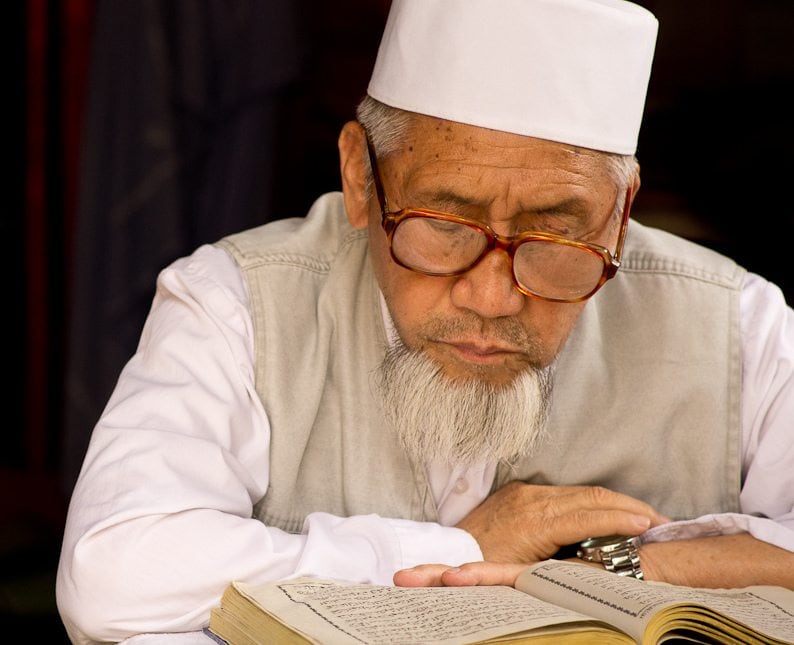Is Historical and Cultural Knowledge Important for a Scholar?
Answered by Shaykh Jamir Meah
Question: Assalamu alaykum
Is it important for an islamic scholar to know about history and cultural background to better understand the people he is advising or the world he is living in, or should he use his time to acquire only islamic knowledge?
Answer: Wa’alaykum assalam. Jazakum Allah khayr for your question. I pray this finds you in the best of states.
The acquisition of knowledge is gradual and should be systematic. This means prioritising what you learn at each stage. General knowledge of history is not essential knowledge in most cases, though can be useful and very important in other situations.
Prioritising Knowledge
How, when, and what knowledge one seeks largely depends on what age one starts seeking knowledge. A child will be able to study to both Islamic and broader subjects together, while someone setting out to study the Islamic sciences in adulthood must obviously prioritise. Most people in the West fall into the latter category.
The first thing everyone must learn is the personally obligatory knowledge. Once this has been learnt, then, if the desire still exists, then one can continue to pursue further studies, which would be fulfilling the communal obligation. During these stages, one should concentrate on their Islamic studies and not be too distracted by other sciences. If one wishes, they could set some time aside for extra-curricular reading.
Once a person has completed the bulk of their Islamic studies, then they may freely choose to explore other broader aspects of knowledge such as history and culture, and ensuring not to neglect Islamic history, which includes the seerah.
Is historical and cultural knowledge useful or essential?
The Prophet ﷺ has said, ‘Be avid for that which benefits you’. As such, anything that strengthens one’s faiths, or enables one to strengthen the faith of others, is praiseworthy. Every sound, beneficial knowledge compliments another, and doubtlessly makes a scholar a much more well-rounded individual, and broadens his thinking and ideas. This doesn’t just apply to scholars, but also to all Muslims.
Whether history is essential for a scholar really depends on the role of the scholar, his location, and the situation. As mentioned, in most cases, it is not essential for a scholar to study general history. For example, a scholar of tafsir only really needs to know history relevant to tafsir, a hadith scholar only in the context of hadith. As for a scholar of the Prophetic biography, then they need to know the history of events, while broader world history would certainly complete his knowledge, but cannot be deemed essential.
As for a jurist, a scholar of sacred law, it also depends on the situation being presented. A knowledge of history is never really necessary to reach a correct ruling, though there may be exceptions (see below). In regards to knowing the culture and customs of a people, this may not be necessary in some cases, highly preferable in others cases, and may be essential in a few situations.
In certain situations, legal rulings should only be issued from scholars of the actual area only, who have knowledge of the history, culture and customs, geo-politics, even climate if relevant, and the specific problems facing the Muslims in that area.
Another area where knowledge of culture and history might be essential is for the one calling people to Islam (da’wah). In these cases, one should gain knowledge of the local history, customs and traditions, as well the dominant beliefs, mind-set, and trends of the local people. To enter into da’wah without this knowledge, one cannot really understand the people and their backgrounds, and therefore any outreach would be limited, and maybe even inappropriate.
It goes without saying, that anyone calling people to Allah in their countries, should first ensure they have at least studied their own personally obligatory knowledge and gained a sound understanding and practice of the religion before speaking to others about it.
Summary
In conclusion, personally obligatory knowledge should always be prioritised. If one is engaged in communally obligatory knowledge, one should focus on those disciplines. Knowledge of history for a scholar is usually not essential, but is always useful. Knowledge of local customs and culture is always useful for a scholar, and sometimes can be very important and essential, depending on the role of the scholar and the specific situation. And Allah knows best.
I wish you all the best. May Allah grant you tawfiq in your studies.
Warmest salams,
[Shaykh] Jamir Meah
Shaykh Jamir Meah grew up in Hampstead, London. In 2007, he traveled to Tarim, Yemen, where he spent nine years studying the Islamic sciences on a one-to-one basis under the foremost scholars of the Ribaat, Tarim, with a main specialization and focus on Shafi’i fiqh. In early 2016, he moved to Amman, Jordan, where he continues advanced studies in a range of Islamic sciences, as well as teaching. Jamir is a qualified homeopath.
